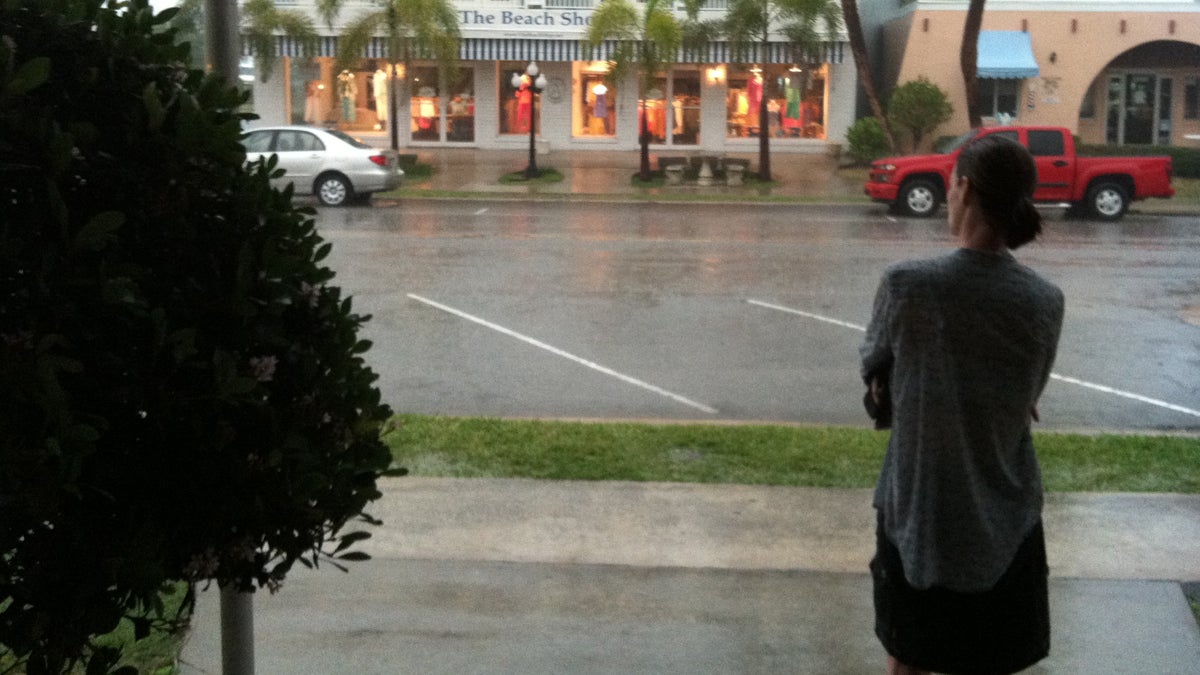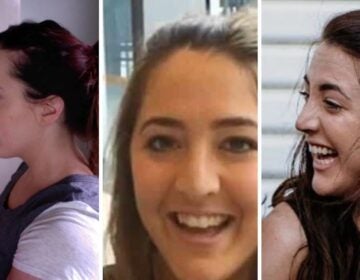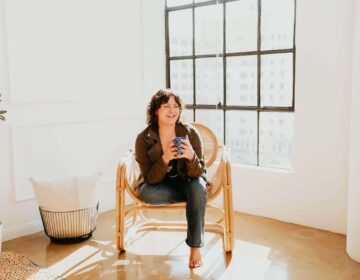This is what depression feels like

(Courtesy of Courtenay Harris Bond)
I feel like the light at the end of the tunnel is a solitary candle about to blow out at any moment. At the same time, I feel like the pain will never end. This has been happening as long for as I can remember.
About this time every year (and other times, too) I sink into a pit that’s hard to scrabble out of. The world seems stark and hollow. My friends feel out of reach.
The smallest tasks seem insurmountable: paying a cell phone bill, lining up a household repair. Sometimes just taking a shower or arranging a play date feels like more than I can manage. My children’s squabbles make me want to scratch the walls. I want to claw out of my own skin.
I feel like the light at the end of the tunnel is a solitary candle about to blow out at any moment. At the same time, I feel like the pain will never end.
This has been happening as long for as I can remember.
Blame it on my brain chemistry. Blame it on my troubled childhood. My lows are doubtless the product of a combination of nature and nurture.
I have spent years searching for an effective cocktail of anti-depressants and anti-anxiety medications to shave off the edge of my worst symptoms without making me faint, or jumpy, or nauseated. Discovering the roots of my depression remains the work of my therapy sessions. I hope that understanding the origins of my suffering will free me from its grasp.
It’s not so much what causes my depression that troubles me as how isolated it makes me feel and how hopeless the world becomes under its influence. I know each dawn when I face my demons that prescriptions and therapy will never ultimately be sufficient, that I will always, fundamentally, fight this battle on my own.
At the same time, I realize how ridiculous all of this is.
I reside in a nest of upper-middle-class white privilege. My children are healthy and thriving, despite my personal problems that have nothing to do with them — that entirely predate their birth. I have a sturdy scaffold of support: a wise and enlightened husband, helpful in-laws, smart doctors and money to pay for the help I so badly need.
I think, in a way, that is one of the aspects of depression that hurts the most. It robs me of my reason.
I recall how, during a major depressive episode I suffered my freshman year of college, a psychiatrist advised me to grab hold of my rational side. But I just couldn’t hang on. It was like one of those nightmares in which a monster is chasing you, but you can’t make your legs move — a paradoxical combination of paralysis and panic — a death spiral in slow motion.
Sometimes, my depression is a dull-witted sloth, batting at me with sloppy arms as I go about my business. Occasionally, my depression is a roaring monster, shredding me from the inside out, while I fight back with every ounce of my strength, at the same time still trying to get lunches packed, put on a brave face for the bus stop moms, read “Ramona and Beezus” in an animated voice at bedtime.
I don’t really feel sorry for myself, however. At least not all the time.
I have been through the worst. I am a survivor. I have help. Therefore, I am lucky. I am wiser and more empathetic for my pain.
But I do believe that I have a disease. Whether it stems from how I was raised or how my brain is wired, or both, is not the most pressing issue for me.
What does feel urgent for some reason right now is the knowledge I’ve gained with middle age that although depression is one of the most isolating of human experiences, an army of those who suffer from it roams this earth.
We should band together and support one another. Those of us who feel strong enough should speak more freely about our experiences. Maybe that will help kill the stigma of our disease forever — and make us realize we are not alone.
—
This essay was origianlly published in the author’s personal blog.
WHYY is your source for fact-based, in-depth journalism and information. As a nonprofit organization, we rely on financial support from readers like you. Please give today.




